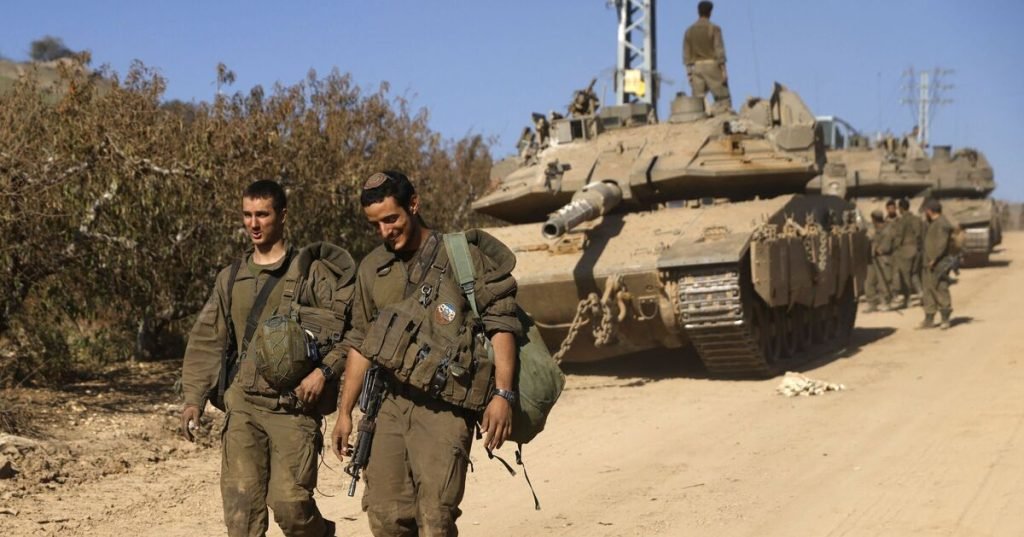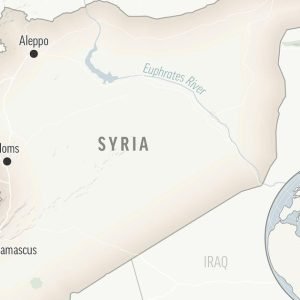
The ceasefire in Lebanon appeared to lay in tatters today after Israel launched a number of deadly salvos on Hezbollah positions in the wake what its army claimed was an attack on a military post.
The raids came as Israeli forces also bombarded civilian homes during repeated attacks in the northern Gaza Strip, killing at least 15 people.
But the supposed deal to halt fighting in Lebanon now looked to have been all but torn up.
At least nine people were killed by Israeli strikes on two southern Lebanese villages, according to the country’s public health ministry.
The Israel Defence Forces (IDF) said it struck Hezbollah targets and infrastructure “throughout Lebanon”, while reiterating its commitment to the ceasefire agreement.
Hezbollah said it was responding to Israeli “violations” and said it carried out a “defensive warning” strike, firing mortars at an Israeli army position in an area occupied by Israel.
Israel said there were no injuries in Hezbollah’s strikes on the Mount Dov area – a disputed region on the Israel-Lebanon border known internationally as Shebaa Farms.
But Israeli Prime Minister Benjamin Netanyahu described the Hezbollah attack as “a severe violation of the ceasefire”, vowing that Israel would “respond forcefully”.
When the ceasefire deal was first announced, Mr Netanyahu said his country would not hesitate to strike if Hezbollah broke the terms.
Meanwhile, in Gaza, Israeli missiles hit buildings in the town of Beit Lahiya, Palestinian medics said.
In addition to 15 dead, many others were wounded in the attack after a house providing shelter to displaced people was struck, with rescue workers unable immediately to reach them, the Palestinian Civil Emergency Service said.
The three barely operational hospitals in the area were unable to cope with the number of wounded, they added.
Clusters of houses were bombed and some set ablaze in Jabalia and in Beit Lahiya and Beit Hanoun, where the Israeli army has been operating for several weeks, residents said.
They said Israeli drones had dropped bombs outside a school sheltering displaced families, suggesting this was intended to scare them into leaving.
The Palestinians say Israel’s army is trying to clear people out of the northern edge of Gaza with forced evacuations and bombardments to create a buffer zone.
The Israeli army denies this.
The Israeli military, which began its offensive against Hamas in Gaza after the militant group’s attack on southern Israeli communities on October 7, 2023, has said its latest operations in northern Gaza are meant to prevent militants regrouping and waging attacks from those areas.
But Jerusalem’s campaign in Gaza has now killed more than 44,400 people and displaced most of the population, Gaza officials say. Vast swathes of the enclave lie in ruins.
About 1,200 people were killed and over 250 taken hostage in the Hamas attack on the October 2023 attack on Israel, according to Israeli tallies.
Israel agreed a ceasefire with the Lebanese armed group Hezbollah last week, but the conflict in Gaza has continued.
Officials in Cairo have hosted talks between Hamas and the rival Fatah group led by Palestinian President Mahmoud Abbas on the possible establishment of a committee to run post-war Gaza.
Egypt has proposed that a committee made up of non-partisan technocrat figures, and supervised by Abbas’s authority, should be ready to run Gaza straight after the war ends. Israel has said Hamas should have no role in governance.
An official close to the talks said progress had been made but no final deal had been reached. Israel’s approval would be decisive in determining whether the committee could fulfil its role.
Egyptian security officials have also held talks with Hamas on ways to reach a ceasefire with Israel.
A Palestinian official close to the mediation effort told Reuters Hamas stood by its condition that any agreement must bring an end to the war and involve an Israeli troop withdrawal out, but would show the flexibility needed to achieve that.
Israel has said the war will end only when Hamas no longer governs Gaza and poses no threat to Israelis.
Israeli Foreign Minister Gideon Saar said earlier this week that there was some signs of progress towards a hostage deal but that Israel’s conditions for ending the war had not changed.
White House national security advisor Jake Sullivan said he thought the chances of a ceasefire and hostage deal were now more likely.






